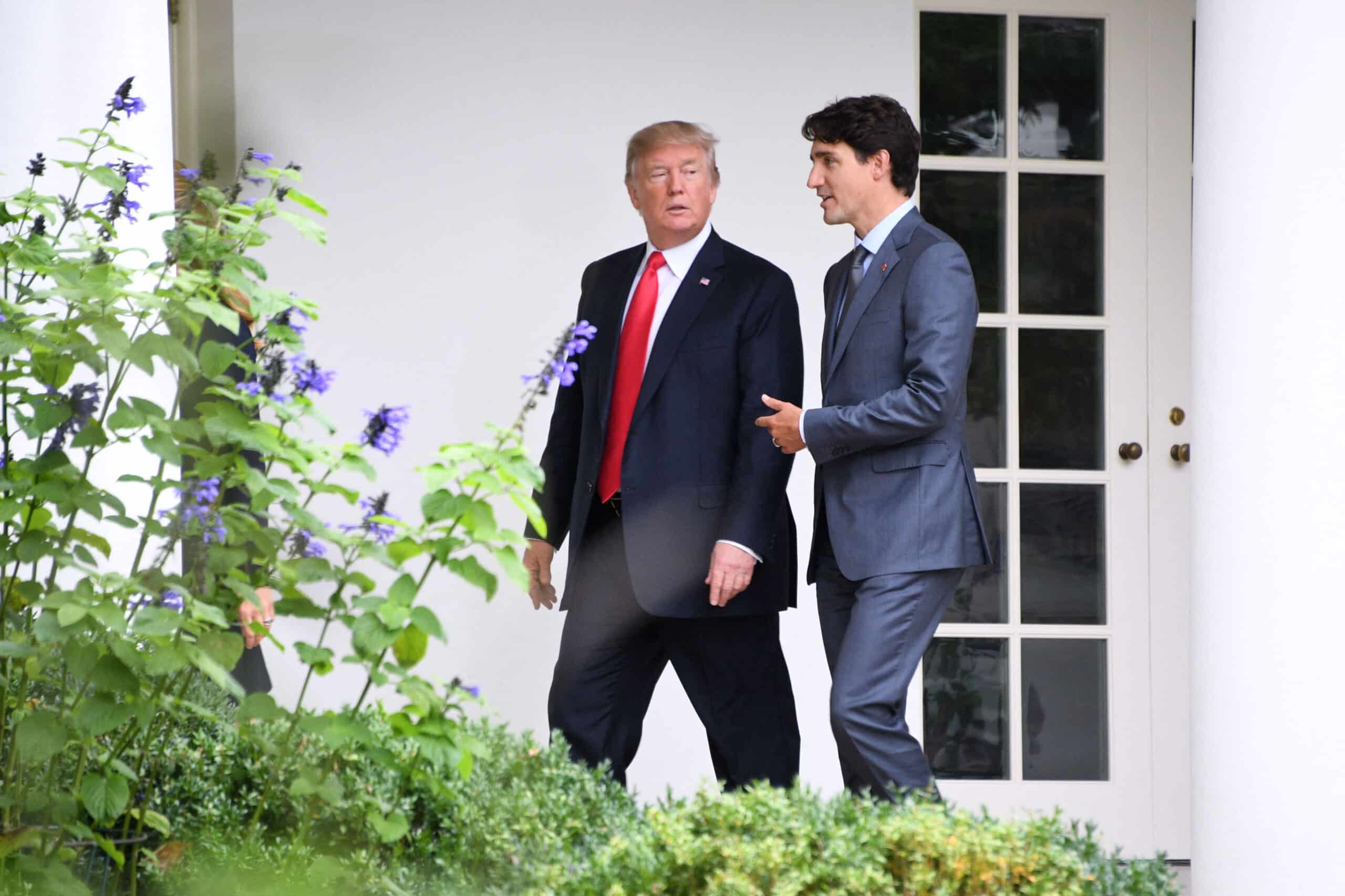
(FILES) US President Donald Trump (L) listens to Canadian Prime Minister Justin Trudeau as they walk towards the Oval Office of the White House in Washington, DC, on October 11, 2017. – Canada was scrambling on November 26, 2024, to blunt the impact of US President-elect Donald Trump’s threat to implement steep tariffs once he takes office, as experts warned of a potentially “catastrophic” hit to the Canadian economy. (Photo by JIM WATSON / AFP)
Ottawa, Canada — Canadian Prime Minister Justin Trudeau said Tuesday he had a “good” conversation with Donald Trump after the president-elect’s shocking tariff announcement targeting the United States’ northern neighbor.
“We talked about how the intense and effective connections between our two countries flow back and forth,” Trudeau told reporters in Ottawa.
“We talked about some of the challenges that we can work on together,” he added. “It was a good call.”
READ: Trump vows to slap 25% tariffs on Mexico, Canada, 10% tariffs on China
The call came after Trump warned he would impose new tariffs of 25 percent on goods from Canada and Mexico, while also unveiling new levies on products coming into the United States from China.
The United States, Mexico and Canada are tied to a three-decade-old free trade agreement, now called the USMCA, that was renegotiated under Trump after he complained that US businesses, especially automakers, were losing out.
On Tuesday morning, a senior government source told AFP that Trump and Trudeau had a “productive and constructive conversation focused on trade and border security” and pledged “to stay in touch.”
Trudeau is scheduled on Wednesday to hold a meeting with Canada’s provincial premiers, many of whom expressed alarm at the possible trade impacts, to discuss the Trump salvo.
In a country that relies on trade with the United States, with some 75 percent of its exports US-bound, the news created shockwaves.
Quebec Premier Francois Legault said the announcement represented “an enormous risk” to the Canadian economy.
His counterpart in British Columbia, David Eby, said “Ottawa must respond firmly.”